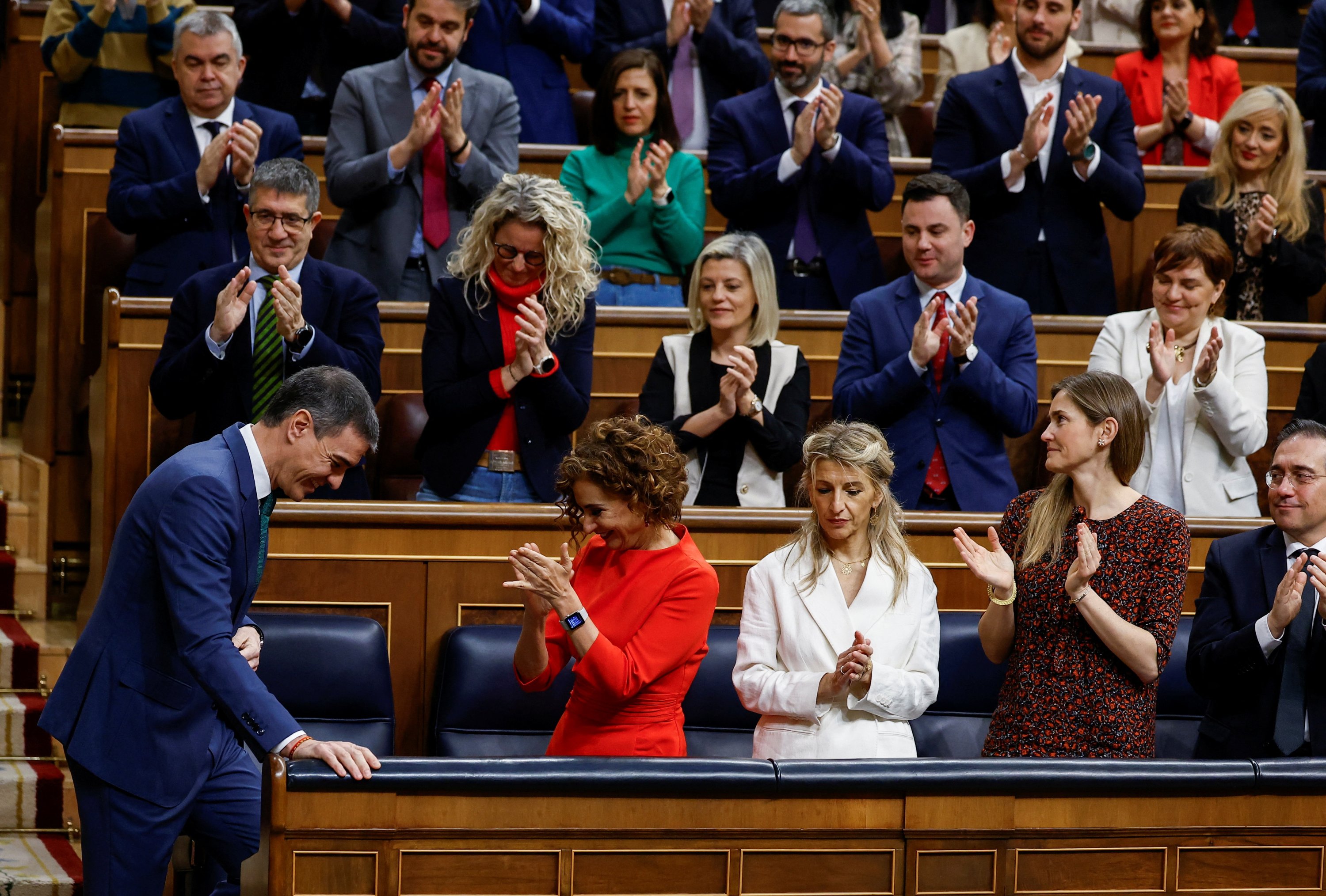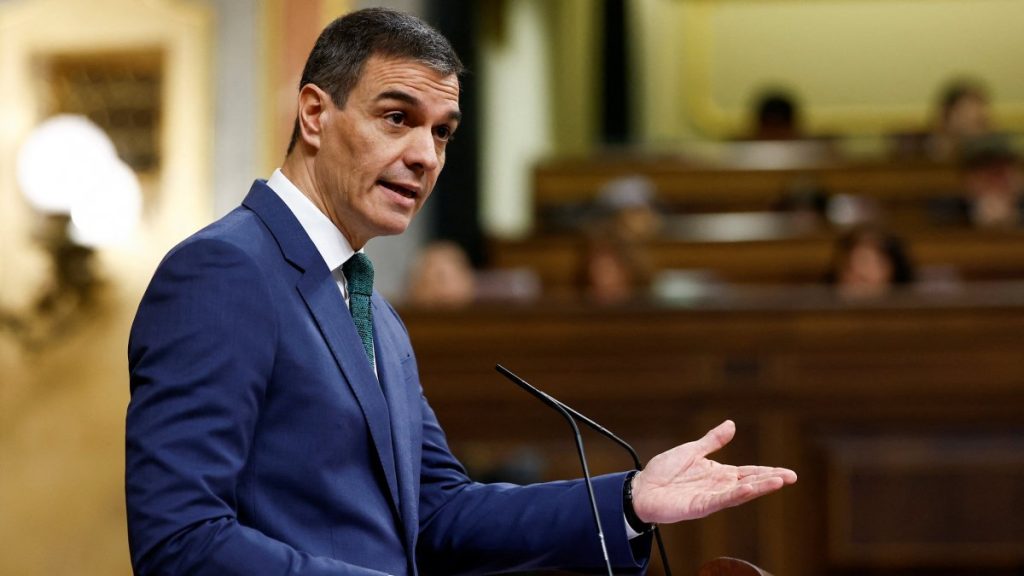As the first quarter of the new century draws to a close, Spanish Prime Minister Pedro Sanchez has become a defining political figure in the country’s history. Sanchez, who rose to the leadership of Spain’s main opposition party, the center-left Spanish Socialist Workers’ Party (PSOE), in 2014, has been known for his modern, diligent and progressive leadership style. As an economics professor, he has consistently championed economic growth, industrial development, international diplomacy, peace, equality and multiculturalism – a vision he defines as “progressivism.” However, he ascended to the Prime Ministry in 2018, following the fall of the center-right government due to corruption scandals. He successfully retained his position in both the 2019 and 2023 general elections, making his tenure one of the most eventful and transformative periods in modern Spanish politics. Spain, once a stronghold of conservatism, has witnessed a remarkable transformation under Sanchez, shifting toward a progressive and contemporary political landscape.
Solving crises, reshaping Spain
Entering the 2000s, Spain was embroiled in a series of sensational corruption cases. The most significant among them was the scandal that led to the downfall of former Prime Minister Mariano Rajoy. A corruption case spanning from 1999 to 2005 exposed unlawful activities within the ruling People’s Party (PP), with hundreds of officials implicated. In 2018, Spain’s National Court directly held the party accountable for corruption, resulting in heavy prison sentences. Seizing the moment, Sanchez filed a motion of no confidence against Rajoy, leading to the collapse of his government.
This was not the only corruption controversy of the era. In 2014, King Juan Carlos was forced to abdicate and leave the country following bribery and financial misconduct allegations. These scandals marked a turning point in Spanish politics, paving the way for a progressive leader like Sanchez to take the reins.
Upon taking office, Sanchez inherited a fragile economy struggling with the aftermath of corruption. Public sector salaries were unpaid and financial instability loomed large. However, no one could have foreseen the added challenge of the COVID-19 pandemic, a once-in-a-century crisis that devastated global economies. Spain’s health care system, which had suffered years of underfunding, was unprepared for the pandemic and surge of patients, leading to tragic mass deaths.
Once the pandemic subsided, nature tested Sanchez’s government again. Spain faced two rare and catastrophic natural disasters: the volcanic eruption in the Canary Islands, which displaced thousands and inflicted immense economic damage, and the devastating floods in Valencia (DANA), which left countless dead, missing or homeless.
In 2022, another crisis started from abroad – the Russia-Ukraine war. The resulting energy crisis struck Europe, adding further pressure to Spain’s economy.
Despite these immense challenges, Sanchez’s government not only endured but thrived. Through strategic social policies, a close partnership with the EU, and economic recovery plans, Spain achieved an impressive 3.2% growth rate post-pandemic, cementing its position as the EU’s fourth-largest economy. The Economist even hailed Spain as the best-performing economy of 2024, highlighting its remarkable turnaround from near collapse to prosperity.
One of Sanchez’s most groundbreaking and controversial moves was his confrontation with the Catholic Church’s historical legal immunity. Traditionally, sexual abuse allegations within the Church were handled internally, preventing them from reaching the Spanish judiciary.
This changed when Sanchez, responding to a writer’s social media post about childhood abuse in the Church, pledged action. He established an independent commission to investigate past allegations, leading to shocking findings: more than 200,000 documented cases of abuse since 1940, and estimates still suggesting that nearly 440,000 children may have been affected. Publicizing these findings put Sanchez at odds with conservatives, who staged protests to oppose his reforms.
In another bold move, Sanchez pursued national unity by passing an amnesty law for the Catalan separatists involved in the 2017 independence movement. This decision sparked heated debate and mass protests, yet Sanchez remained resolute, believing that reconciliation was essential for Spain’s future.
His economic policies also stirred controversy. By prioritizing lower-income citizens over economic elites through housing reforms and taxation policies, Sanchez earned the ire of liberals. His staunch opposition to human trafficking, prostitution and the drug trade further intensified his clashes with powerful criminal networks.

Humane, just foreign policy
Sanchez refused to remain silent on the Middle East conflict on the international stage. From the early days of Israel’s offensive in Gaza, he actively engaged in diplomatic efforts, advocating for humanitarian aid and peace. Spain became the first European nation to halt arms sales to Israel, and Sanchez led the charge in recognizing Palestine as an independent state within the 1967 borders. His diplomatic efforts encouraged other nations to follow suit.
Sanchez kept close ties with the United Nations to ensure security and humanitarian aid in Gaza. To reinforce these efforts, he appointed his trusted colleague, Industry, Trade and Tourism Minister Hector Gomez, as Spain’s ambassador to the U.N. in New York, removing him from his ministerial position so he could focus on diplomatic negotiations for Gaza. Besides, in NATO discussions, Sanchez consistently emphasized the need for consistent adherence to international law, urging Western allies to apply the same legal standards to Gaza as they did to Ukraine.
The reasons behind Sanchez’s support for Gaza can be summarized under several key points. His stance is rooted in moral values and a strong ideological commitment to multiculturalism, which reflects his broader political vision of inclusivity. The fact that approximately 6% of Spain’s population is Muslim, a community that largely supports Sanchez politically, must have influenced his policies as well. Additionally, the historical connection Arabs feel toward Spain, viewing it as part of the legacy of the Andalusian Umayyads, and substantial Arab investments in Spain also play significant roles, further reinforcing this support.
Moreover, there is a notable Iranian influence within the country. Reports suggest that the far-right VOX and the far-left PODEMOS parties and Iranian dissidents have received funding from the Iranian government. This complex dynamic positions Spain closer to the Middle East and the Islamic world, shaping its reactions and diplomatic stance on regional issues.
Spain’s relationship with Türkiye also flourished under Sanchez. President Recep Tayyip Erdoğan frequently praised Sanchez’s firm stance on Gaza, calling him “Brave Sanchez” and stating, “The West’s true hero has emerged in Sanchez.” The two leaders further strengthened ties through economic and diplomatic agreements in 2024. Highlighting the trust between the nations, Sanchez stated: “We have preserved this mutual confidence. Türkiye and Spain are friendly nations with a special bond built on trust.” Erdoğan echoed these sentiments, often referring to Sanchez as “my friend Sanchez” in his speeches.
Additionally, he lauded Sanchez’s Gaza policy, acknowledging his special place in the hearts of the Turkish people. Both leaders also underscored the significance of the “Alliance of Civilizations” initiative, a joint effort launched by Spain and Türkiye in 2005. Moreover, in January 2025, at Spain’s Ambassadorial Conference, Sanchez made a striking statement, emphasizing, “We must further strengthen our relations with Türkiye,” singling out Türkiye as a key strategic partner.
After seven years under Sanchez’s leadership, Spain has transformed from a conservative stronghold into a model of progressivism. He has championed equality across all social groups – regardless of religion, ethnicity, economic status, gender or nationality. His administration has fostered social justice, human rights and closer European integration while maintaining an active foreign policy.
Despite fierce opposition from radical nationalists, staunch conservatives and powerful institutions, Spain’s evolution continues. Against all odds, the nation moves forward, embracing a more inclusive and dynamic future with President Sanchez.


